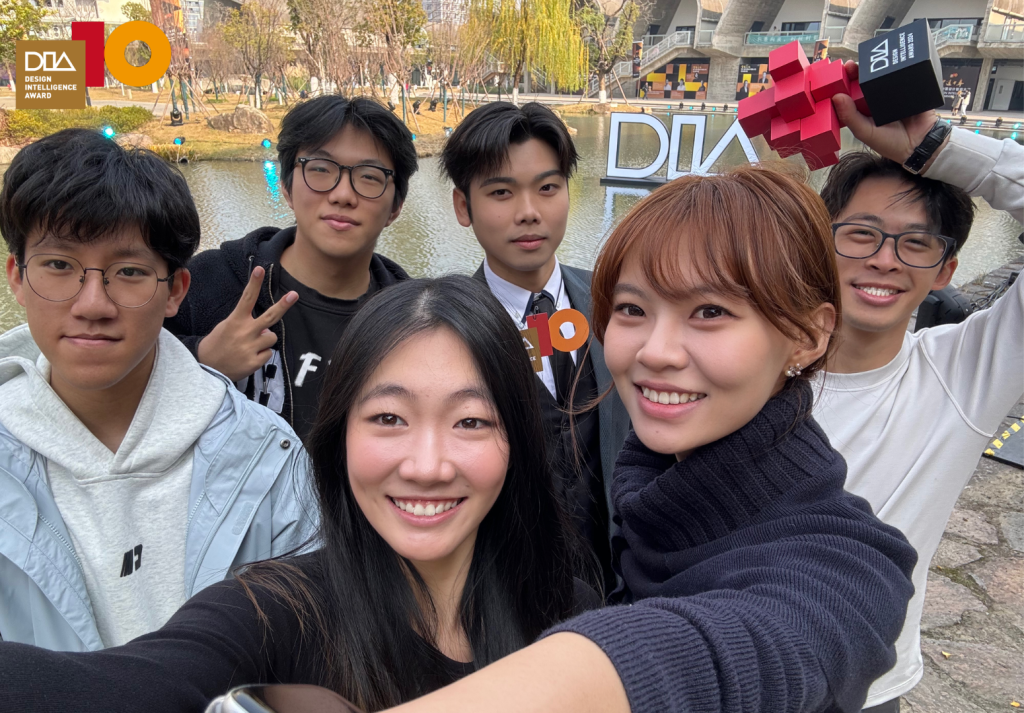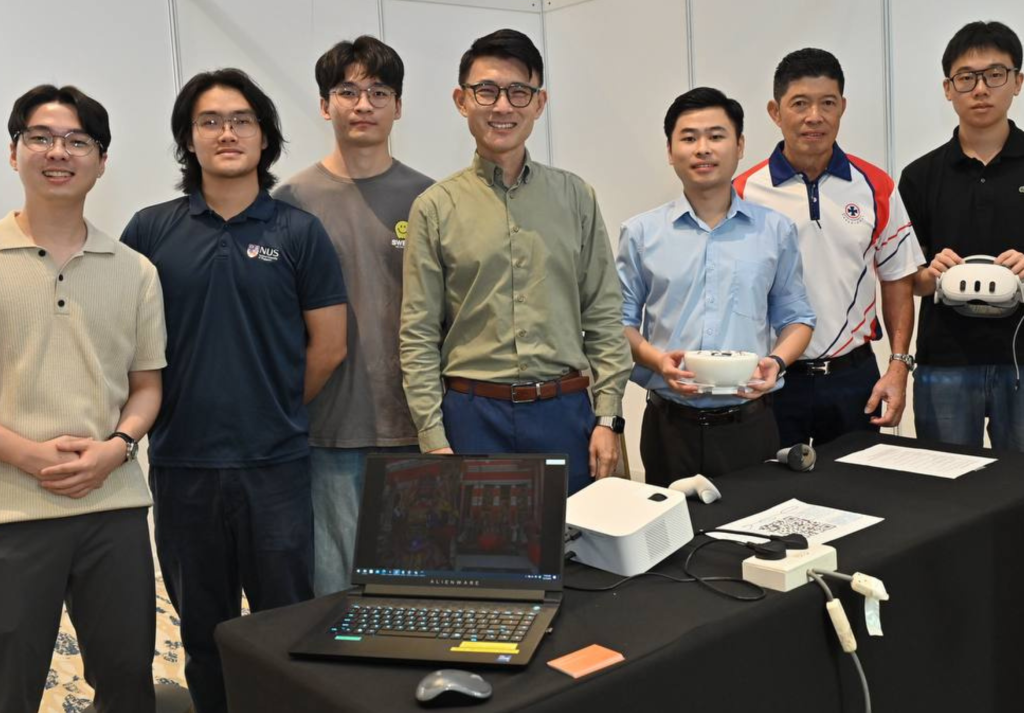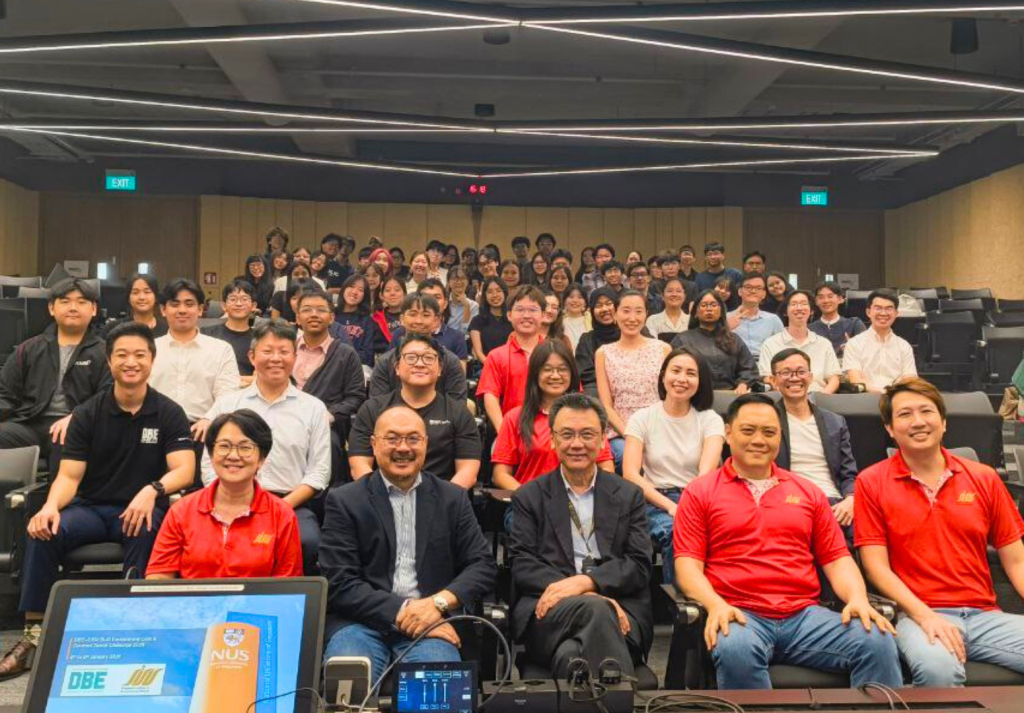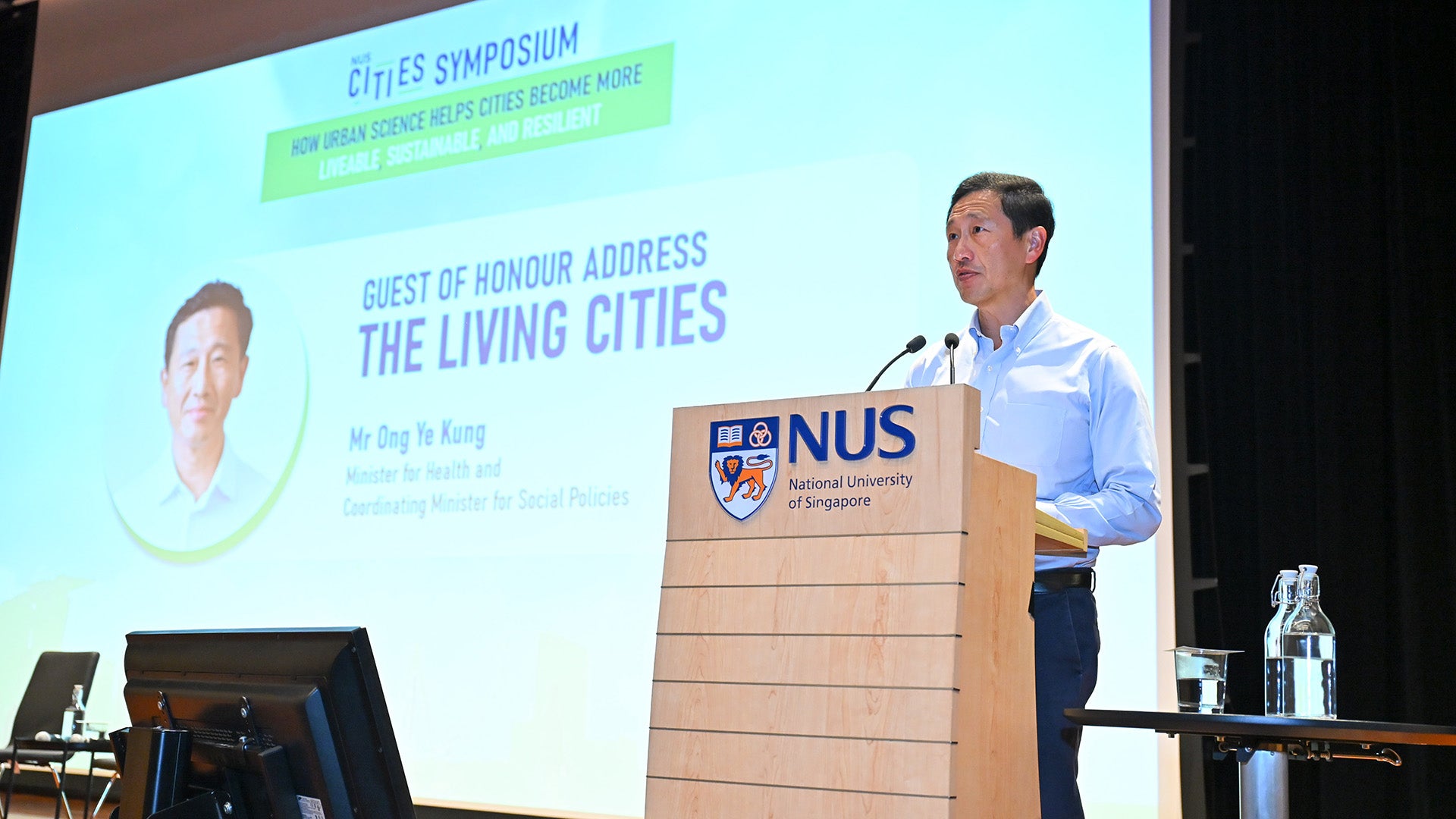
What makes a city truly liveable? Not just in the present, but for generations to come.
“Cities are living entities,” said Mr Ong Ye Kung, Minister for Health and Coordinating Minister for Social Policies, in his opening address to the third annual NUS Cities Symposium. “They are not just bricks and mortar, they are alive and dynamic. They are shaped by the environment and the tides of history, and undergo natural cycles of growth, stress, maturity and renewal.”
Whilst bricks and mortar provide the frame, it is people who give cities their meaning. This was a recurring message during the day-long gathering, with several speakers noting that understanding and incorporating the human dimension is often the most elusive aspect of urban science.
“Any part of the social dimension is extremely difficult to make tangible,” observed keynote speaker Professor Marie Harder of Fudan University, pointing to the challenge of translating lived experience into usable knowledge. Yet without this, she said, planning risks overlooking the very purpose of cities: to serve the lives within them.
Held on 3 September 2025 as part of Urban Science Week 2025 and NUS Sustainability CONNECT, the symposium showcased NUS Cities’ role as a thought leader, demonstrating how research, education, and practice intersect to create high-value solutions.
Under the banner theme of “How Urban Science Helps Cities Become More Liveable, Sustainable, and Resilient”, the symposium examined how cities can adapt to the defining challenges of the 21st century, from ageing populations and rising temperatures to social cohesion and sustainable growth.
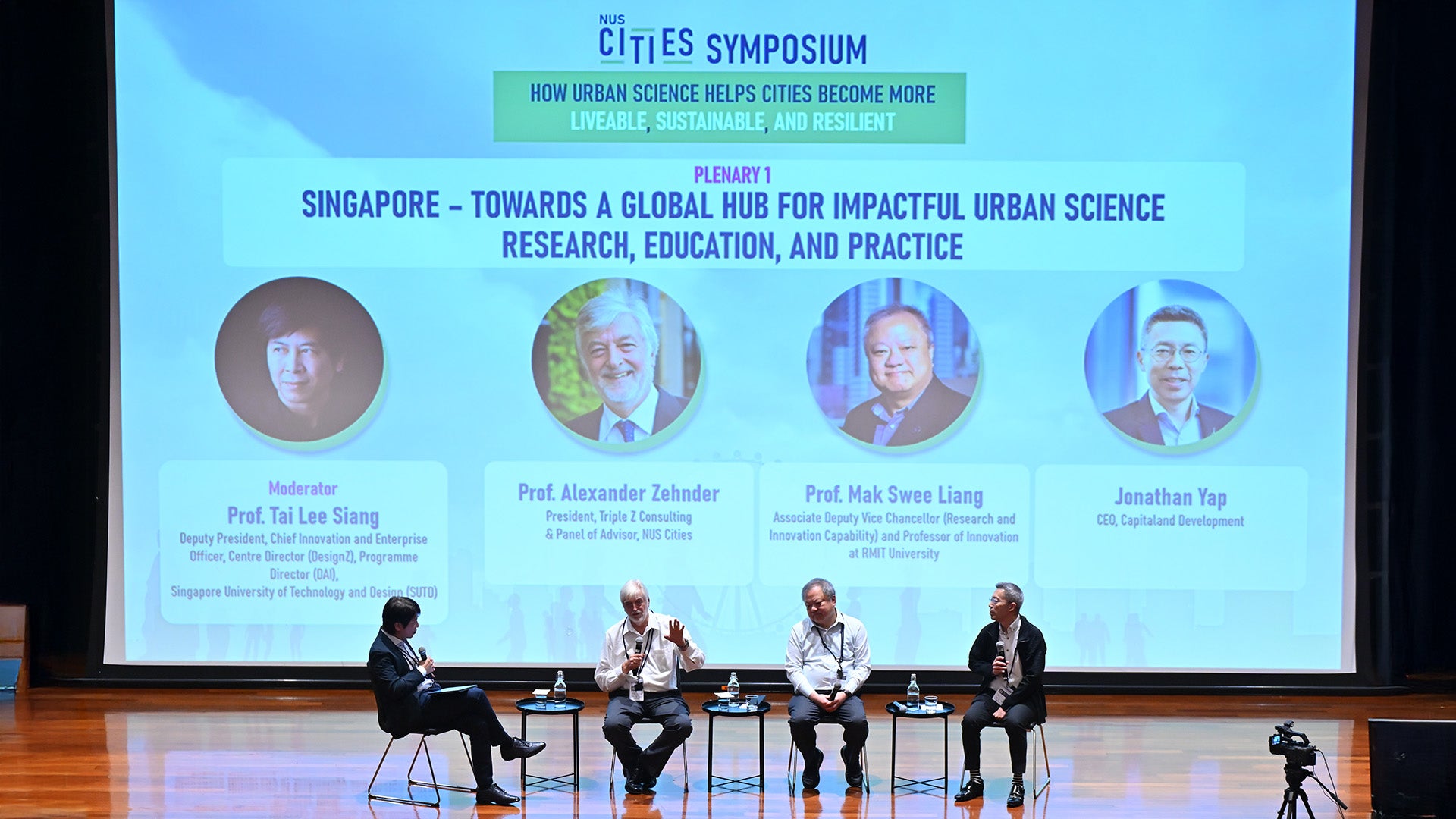
Evolving cities
With Mr Ong as Guest of Honour, the event brought together policymakers, researchers, urban practitioners, and students for a day of discussions, knowledge exchange, and collaborative approaches to creating healthier, more resilient cities.
“Cities can invest effort to rehabilitate, nurture, strengthen and rejuvenate themselves, and go against their natural cycles,” Mr Ong said, setting the tone for the day. “This is the job of visionaries, policymakers, planners, designers, builders, social workers, community groups, and everyone present today.”
Drawing on historical examples, Mr Ong illustrated how cities have always reflected the priorities of their times, whether for defence, agriculture, trade, or survival. Now, he said, living cities must support active ageing, adapt to climate change, and foster inclusive spaces for diverse populations.
Cities, Mr Ong noted, are complex - even “messy” - but it was important that they evolve “in anticipation of future needs.”
“Urban science is our means not only to better understand the forces that can affect our lives, but also to evolve our city and ourselves so that we can continue to determine our fate,” he said.
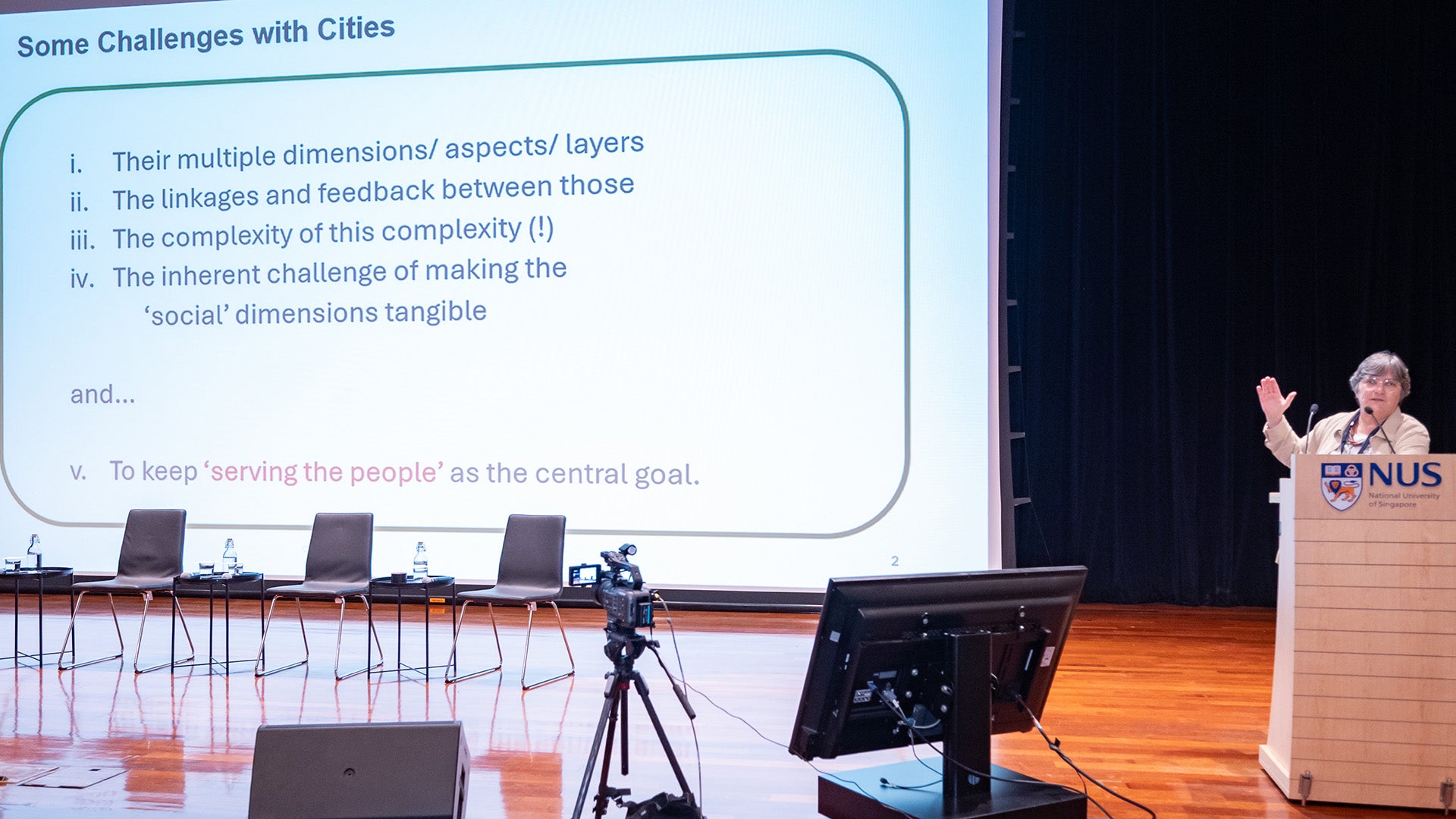
'We are all stakeholders'
For NUS Cities, the symposium was both a showcase and a collaborative platform. The interdisciplinary centre brings together expertise in planning, architecture, engineering, public health, data science, and governance, positioning Singapore as a living laboratory for urban solutions.
In his opening address, Professor Yeo Siew Haip, Director of NUS Cities, drew attention to the human-centred approach that guides the centre’s work. “Cities are highly complex and no single field or practice can purport to have the answers and solutions,” he said.
“The study of cities and dealing with urban challenges has to be systematic, holistic, from identifying the problems to co-creating solutions together. We are all stakeholders, we all live in cities, we all live in homes, so everybody, regardless of whether you are building professionals or not, you are part of the journey.”
As examples of NUS Cities’ work in this area, Prof Haip pointed to initiatives such as collaborations with the Health Promotion Board to study senior mobility and neighbourhood liveability, and the forthcoming Urban Observatory, which will capture population and lifestyle trends to guide policy and planning.
Alongside the keynote addresses, a series of plenary sessions brought together academics, policymakers, and industry leaders to debate practical pathways for more liveable cities. Discussions ranged from climate adaptation and housing affordability to how data and technology can inform inclusive design.
Among the panellists in the first session was Mr Jonathan Yap, Chief Executive Officer of CapitaLand Development, one of the symposium’s sponsors, who stressed that users must be at the centre of urban development, as real estate only has meaning if it serves the people who occupy and experience it. “Users are a very important group because ultimately we create space for the people,” he said in a presentation. “If the space doesn't meet the user's requirement, then it loses its meaning.”
Mr Yap also drew attention to the need to move beyond siloed approaches and foster genuine collaboration between planners, developers, policymakers, and communities. “Integration is key to the quality of the built environment. The thinking goes beyond brick-and-mortar and into the environment necessary for communities to thrive. At CapitaLand, our ‘One CapitaLand’ approach brings this complete system view to life across the entire value chain, making urban science actionable at scale.”
'Man on the moon project'
Professor Alexander Zehnder, President of Triple Z Consulting and a member of the NUS Cities Panel of Advisors, delivering the first keynote, called for the creation of a dedicated global institute to tackle the complexity of urban life. Comparing the challenge to a “man on the moon project for the 21st century,” he argued that while universities, governments, and private companies each contribute valuable knowledge, no single body currently has the mandate or structure to drive long-term, interdisciplinary solutions for cities.
Prof Zehnder highlighted Singapore’s position as a natural home for such an institute, citing its legacy of rigorous urban planning, strong academic institutions, and status as both a city and a state. “You are the unique city-state,” he said, adding that Singapore’s governance model, combined with its geographic relevance in Asia and the tropics, could enable it to become the world’s hub for urban science.
Professor Mak Swee Liang, Associate Deputy Vice Chancellor (Research and Innovation Capability) at RMIT University, spoke on the importance of breaking down disciplinary and institutional barriers to build a research ecosystem with real-world impact. “Most of the problems we face today, including those in urban environments, are complex, multifaceted,” he said. “And complex problems cannot be solved by narrow thinking within disciplinary silos.”
Prof Mak pointed to initiatives such as RMIT’s Housing Network, which brings together engineers, social scientists, and industry partners to tackle issues of affordability, equity, and sustainability, as examples of how transdisciplinary approaches can redefine both the problems and the solutions.
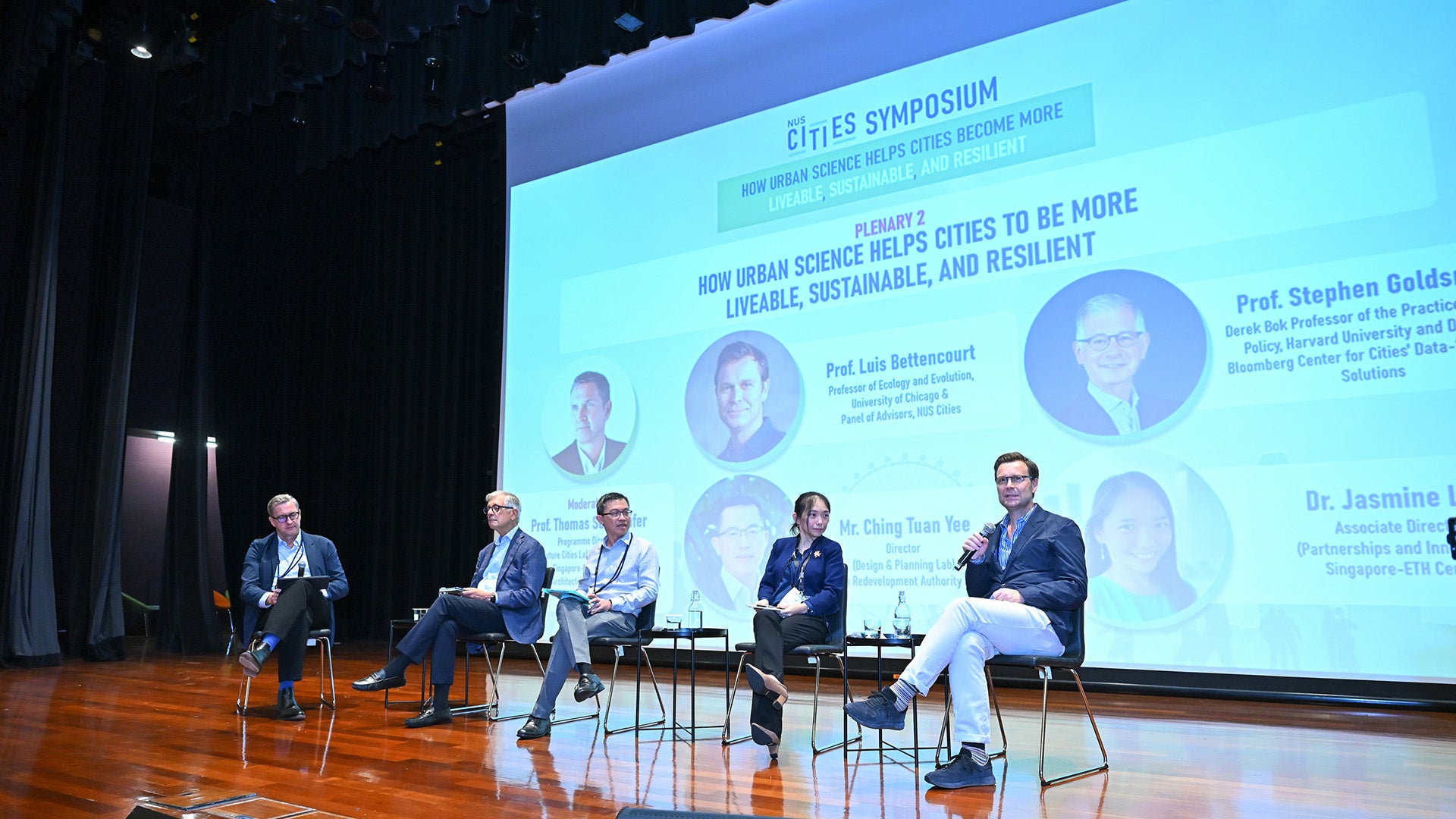
'Shared values'
Delivering another keynote address, Professor Luis Bettencourt, Professor of Ecology and Evolution at the University of Chicago and a member of the NUS Cities advisory panel, argued that urban science should uncover the processes that shape cities, from infrastructure and density to the social networks that foster creativity and resilience. “Cities are essentially machines for social interaction, and in doing that, they're also machines for innovation,” he said. Pointing to New York City’s evolving climate action plan, he highlighted how long-term, iterative approaches can help cities adapt and solve complex problems. For Singapore, he suggested, the challenge is to harness these principles to build environments that are both resilient and liveable.
Professor Marie Harder, Distinguished Professor at Fudan University and Professor at the University of Brighton, introduced “shared values crystallisation,” a method to translate tacit, informal knowledge into structured insights. This enables communities to articulate what truly matters to them and provides planners with values-based data to inform decision-making. “We have to remember that serving the people is supposed to be the central aim,” she said, adding: “the purpose of the city is as a function for the lives – the rich, productive, enjoyable lives – of the people.”
Using examples from Singapore and other countries, Prof Harder showed how shared values frameworks can guide resilience planning, particularly in addressing issues such as heat stress for senior residents. By grounding urban science in locally defined values rather than externally imposed indicators, she suggested, cities can move closer to defining a “desirable state” that reflects what residents themselves see as essential for liveability.
With perspectives spanning government, academia, and industry, the symposium conveyed the urgency of rethinking cities for resilience, health, and sustainability, demonstrating both the complexity of urban challenges and the promise of urban science as a framework for building cities that truly live well.



